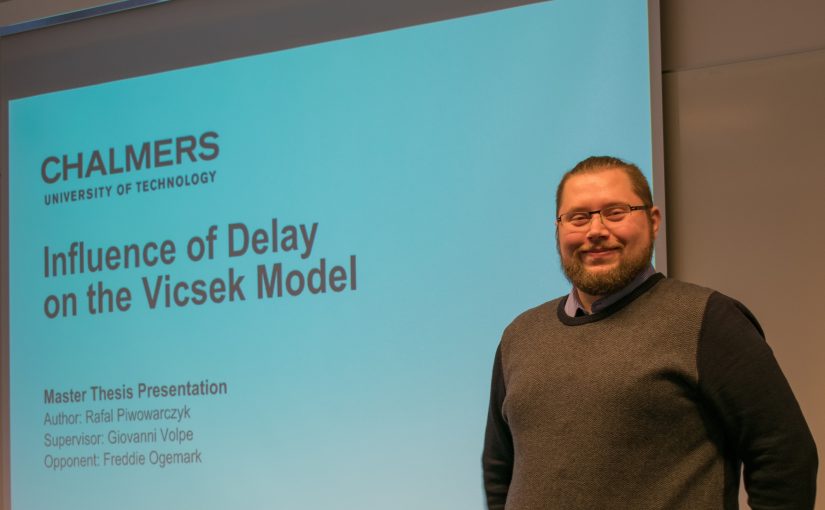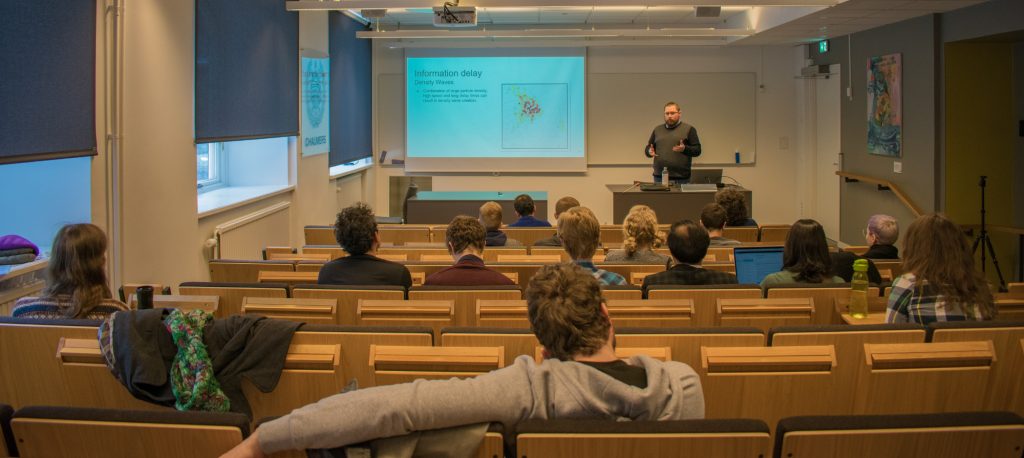Rafal Piwowarczyk defended his Master thesis in Complex Adaptive Systems at Chalmers University of Technology on 19 February 2018
Title: Influence of Delay on the Vicsek Model
The aim of this work is to show that sensorial delay influences the behaviour of self-propelling agents using self-aligning interactions. The model was based on the Vicsek model, which is a two-dimensional system of self-propelling particles that are able to detect and align with each other within a certain radius. We prove that the introduction of short delays favours cluster and swarm formation, while extending the delay to higher values or implementation of negative delays significantly harms this process. We introduce a global clustering parameter, which is based on the use of the Voronoi tessellation, which allows us to measure the emergence of clusters. The sensorial delay might play a crucial role in systems that exhibit swarming behaviours and it’s better understanding can result in the construction of key tools for the realisation and manipulation of complex networks of autonomous robots.
Name of the master programme: MPCAS – Complex Adaptive Systems
Supervisor: Giovanni Volpe, Department of Physics, University of Gothenburg
Examiner: Giovanni Volpe, Department of Physics, University of Gothenburg
Opponent: Freddie Ogemark, MP Complex Adaptive Systems, Department of Physics, Chalmers University of Technology
Place: PJ, lecture hall, Fysik Origo, Fysik
Time: 19 February, 2018, 11:00

